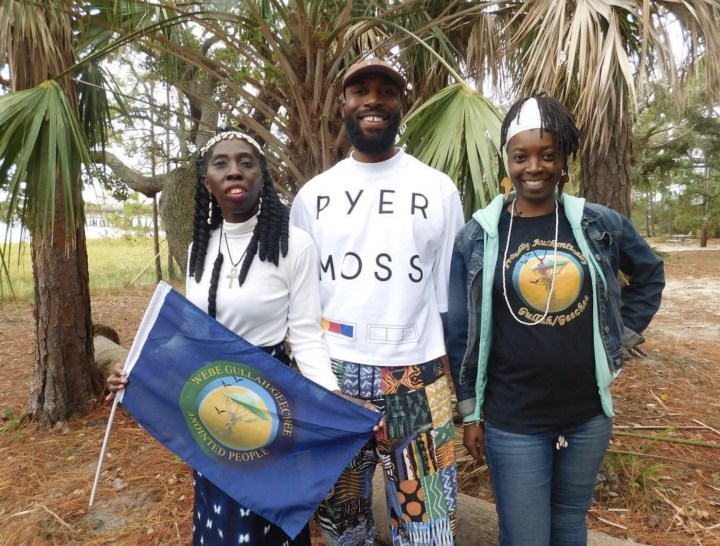The Gullah People were mentioned in an earlier post of mine on their folklore of the boo hag, but due to it being Black history month and this group of African Americans being mostly unknown, this is the perfect post to introduce them. The Gullah people, who are also referred to as Geechee, are African Americans who live in Georgia, Florida, and the Lowcountry region of South Carolina. What makes them and their culture unique is that they have managed retain their West African linguistic and cultural heritage through years of slavery and poverty. While other African Americans have a little connection to their African culture, the Gullah people were fortunately able to retain most of theirs. Through this they developed their own culture and creole language also known as Gullah. Their ability to retain their African culture from slavery is important, because during slavery slaves had their native cultures and languages purposefully wiped and beaten out of them and were forced to adopt their white master’s culture and heritage. Slave masters would intentionally put African slaves of different languages and cultures together so that they would not have any way to communicate with each other, join together, and/or rebel. So it is a great source of pride to themselves and other Black people, that the Gullah people were able to retain and develop their own African cultural and linguistic heritage.

One of the main staples of Gullah cultural dishes is rice, which also connects them to their Sierra Leonean heritage. In the 1700s colonists found out that rice could grow well in their new environment but they had no idea how to cultivate it and they needed African slaves who knew how to plant and grow rice. So they took many slaves from the West African countries of Sierra Leone and Liberia which are also referred to as the “Rice Coast” and the “Windward Coast”, as these people were known to be great rice cultivators. So many slaves from Sierra Leone were imported to America during that time and worked on rice plantations that there is clear evidence that the Gullah culture and people are heavily influenced by and descend from Sierra Leone.

In recent times the Gullah people are fighting hard to keep their traditional lands and are spreading the word about their culture and heritage. In the past years plantations were bough by wealthy white people and turned into resorts, threatening to push them off of their land which they have owned since they were freed. There has been an increase in interest in them with anthropologists due to their history, culture, and the preservation of it. In 2006, the government passed the Gullah/Geechee Cultural Heritage Corridor Act which gives them $10 million over ten years for the preservation of historic Gullah culture sites that are important to American, and especially African American, history.
jts5871
February 11, 2021 at 4:55 pmLeMhai, thank you so much for bringing attention to the beautiful cultural breadth of the Gullah People. I have personally never heard of the Gullah People, therefore I appreciate you highlighting their interesting blend of Sierra Leonean heritage, as well as the resilience that their culture showed in the face of slavery. It is comforting that the Gullah People were granted some financial protections against erasure by white planation owners, but it is alarming that the government took this long to address the issue. I am enthusiastic to continue following your blog because this post, as well as your previous blog posts, have been extremely informative for me.
cfb5465
February 14, 2021 at 8:11 pmI have never heard of the Gullah people before, which I find disappointing as the American public education does not teach students enough about the diverse cultures within the United States. I also appreciate how you included how difficult it was for slaves to retain their cultures upon arrival in America. The determination they demonstrated when enslaved is very inspiring and should be talked about more. It is good to know that the government has provided them with financial protection, however it is disappointing how long this took, and I can’t help but to wonder what other struggles the Gullah people had to face in the past against the government.
ees5537
February 15, 2021 at 3:14 pmI never knew about the Gullah people, but reading about them in your post I am so eager to learn more. I am ashamed of what the nation has put this group through and am disappointed about the unity the nation is supposed to acquire. The strength and personality of these people remain unmatched to what people have heard about in history. I am saddened of not knowing them before because I believe their stories from being enslaved but then overcoming is so inspiring and motivating for learners to realize.
mxd5728
April 27, 2021 at 7:52 pmI had never heard about the Gullah people before reading this post, but I found what you said about the extremely interesting. I love a bowl of rice so I feel like I would love to try some of their food sometime. Plain rice Is a great comfort food to me. It seems like they have a great culture and heritage that is worth preserving. I hope they can accomplish this and don’t get lost in history as so many other civilizations have.